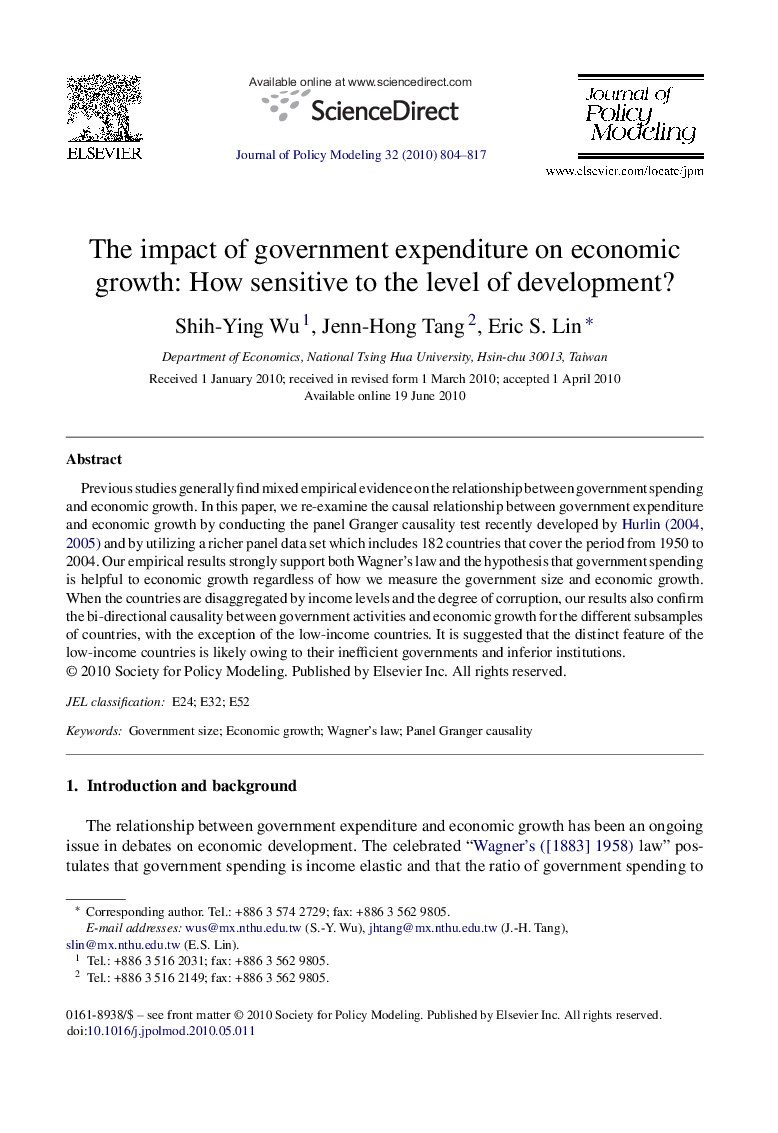| Article ID | Journal | Published Year | Pages | File Type |
|---|---|---|---|---|
| 968665 | Journal of Policy Modeling | 2010 | 14 Pages |
Previous studies generally find mixed empirical evidence on the relationship between government spending and economic growth. In this paper, we re-examine the causal relationship between government expenditure and economic growth by conducting the panel Granger causality test recently developed by Hurlin, 2004 and Hurlin, 2005 and by utilizing a richer panel data set which includes 182 countries that cover the period from 1950 to 2004. Our empirical results strongly support both Wagner's law and the hypothesis that government spending is helpful to economic growth regardless of how we measure the government size and economic growth. When the countries are disaggregated by income levels and the degree of corruption, our results also confirm the bi-directional causality between government activities and economic growth for the different subsamples of countries, with the exception of the low-income countries. It is suggested that the distinct feature of the low-income countries is likely owing to their inefficient governments and inferior institutions.
